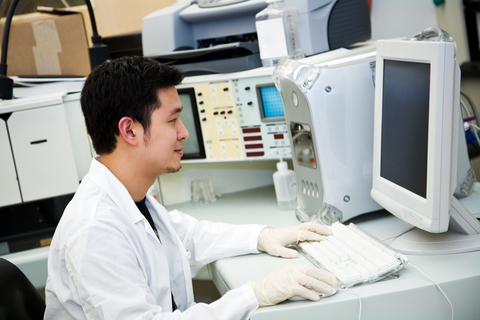New supercomputer to speed up research at the University of Bristol

Research and teaching at the University of Bristol will now benefit from one of the fastest and most advanced supercomputing facilities in the UK, capable of up to six hundred trillion calculations per second (University of Bristol, 2017).
The new multi-million pound system, called Blue Crystal 4 (BC4), is three times faster than its predecessor and will allow researchers to process vast amounts of complex data at record speeds. Over a thousand researchers and PhD students in areas such as paleobiology, biochemistry, physics, molecular modelling, life sciences, and aerospace engineering will benefit from the new system.
The University of Bristol has invested £16m in High Performance Computing (HPC) and research data storage in the last ten years. Uses for Blue Crystal have evolved to include teaching, with students on six courses learning how to use HPC for research projects and real life applications.
Professor Nishan Canagarajah, Pro Vice-Chancellor for Research at the University of Bristol, said “This new supercomputer reinforces Bristol’s position as one of the leading centres for HPC in the world. Over the past 10 years, its role in world-leading, often life-saving research, has become even more evident and we’re committed to staying ahead of the game. In addition to research, we take pride in offering taught courses on HPC for our students which prepare them for their future in this important field.”
Designed, integrated and configured by the HPC, storage and data analytics integrator OCF, BC4 has more than 15,000 cores making it the largest UK university system by core count and a theoretical peak performance of 600 Teraflops.
Dr Christopher Woods, EPSRC Research Software Engineer Fellow at the University of Bristol, said “We have researchers looking at whole-planet modelling with the aim of trying to understand the earth’s climate, climate change and how that’s going to evolve, as well as others looking at rotary blade design for helicopters, the mutation of genes, the spread of disease and where diseases come from.
“Early benchmarking is showing that the new system is three times faster than our previous cluster – research that used to take a month now takes a week, and what took a week now only takes a few hours. That’s a massive improvement that’ll be a great benefit to research at the University.”
The Blue Crystal supercomputer facility played a pivotal part in a €1.8m study into Ebola, looking at the speed of virus evolution, and the corresponding effect on vaccines, diagnostics and treatment.
Dr David Matthews, Senior Lecturer in Virology at the University of Bristol, who led the Bristol component of the study, said “The capabilities of Blue Crystal were invaluable to our research. We used it to analyse raw data on the Ebola virus in 179 patient blood samples to determine the precise genetic make-up of the virus in each case. This allowed the team to examine how the virus evolved over the previous year, informing public health policy in key areas such as diagnostic testing, vaccine deployment and experimental treatment options.” This complex data analysis process took around five hundred and sixty days of supercomputer processing time, generating nine thousand billion letters of genetic data before reaching Ebola’s 18,000 letters long genetic sequence for the blood samples.
David Matthews will use BC4 to help with his latest research into Dengue fever and Zika virus.
Caroline Gardiner, Academic Research Facilitator at the University of Bristol, said “We’re now in our tenth year of using HPC in our facility. We’ve endeavoured to make each phase of BlueCrystal bigger and better than the last, embracing new technology for the benefit of our users and researchers.”
The new system is ranked 301 in the world, according to the Top 500 list of the world’s fastest supercomputers. It’s being launched at a special symposium in Bristol today.
Simon Burbidge, the University’s new Director of Advanced Computing, said “It is with great excitement that I take on the role of Director of Advanced Computing. My predecessor, Ian Stewart, has made a tremendous contribution in developing the Blue Crystal facility. I look forward to building on this foundation and enabling the University’s ambitious research programmes through the provision of the latest computational techniques and simulations.”








